 My main interests lie in language change: correlations (what structural changes tend to co-occur), directionality, triggers (internal or external causes of change), and the acquisition process as the explanatory force behind diachronic change.
My main interests lie in language change: correlations (what structural changes tend to co-occur), directionality, triggers (internal or external causes of change), and the acquisition process as the explanatory force behind diachronic change.
I work principally on syntactic change in the history of French and how it relates to and can inform us about changes in other Romance languages. Generally, my work focuses on the first phase syntax/semantics of the verb phrase and has led me to examine various kinds of verbal arguments in Romance, both synchronically and diachronically. For a number of years, I have been working on the evolution of resultative secondary predication from Latin to Modern Romance and its typological implications. I have also recently renewed my interest in primary sources of data that shed light on aspects of very early Gallo-Romance syntax. Currently, I am a cooperating researcher in in the project Structuring the Input in Language Processing, Acquisition, and Change, funded by the German Research Foundation, and collaborating researcher in the SSHRC-funded grant Argument realization beyond valence. A cross-linguistic investigation (2024-29, M.C. Cuervo, PI) that investigates the possibilities and limits of a third internal argument of the verb phrase (the traditional view being that there should only be two).
As a teaching-stream faculty member, I am deeply engaged in connecting my research to my role as an educator. The linguistics courses that I teach - from large introductory courses and mid-level syntax courses to upper-level courses on Romance linguistics, historical linguistics, and typology - are enriched by involving my students in the data and the research questions that I am currently investigating. Since the dissemination of research is tightly connected to effective writing and careful argumentation, my courses have a natural commitment to teaching such skills. Undergraduate students gain experience working directly on research projects with me in the context of ROP and Independent Study courses, and graduate student research assistants have been involved in much of my research. Most students I work with present their research or our collaborative work at national and international conferences, and some have co-authored articles with me. I am also engaged in undergraduate education from above, so to speak, through academic program coordination and curriculum creation and design. In the past, I also examined the role learning analytics can play in online education and the ways critical pedagogy can effectively be implemented in large online courses.
